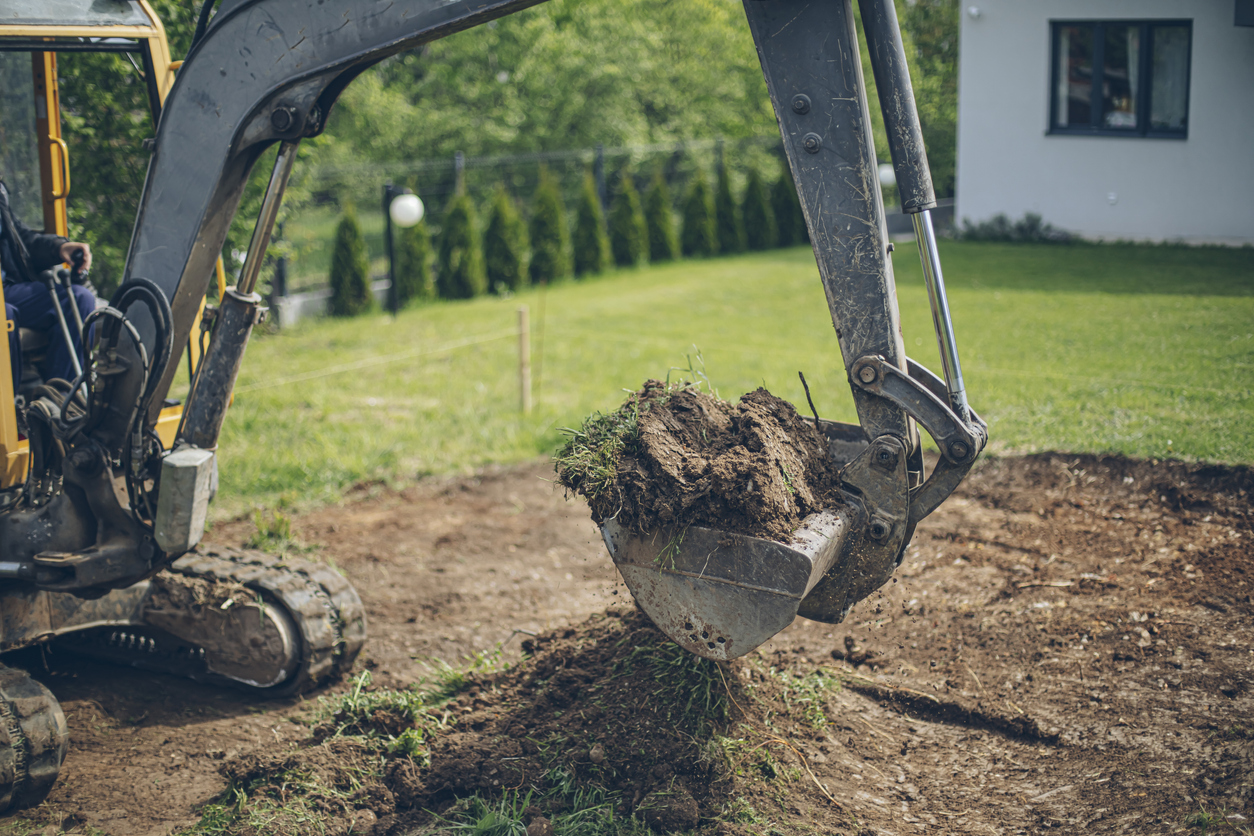Excavation work presents some of the highest risks within the construction industry, particularly for third-party injury and property damage. From open trenches to unstable soil, the nature of excavation work introduces unique hazards that can impact people and property nearby.
For excavation contractors, a comprehensive excavation liability insurance policy is vital to safeguard against these risks. Retail and wholesale brokers play a crucial role in guiding contractors toward the right coverage solutions to mitigate these high-stakes liabilities.
Identifying Third-Party Risks in Excavation Work
Excavation projects introduce third-party liability concerns, making robust liability protection essential. Let’s examine some specific risks that can lead to claims.
Slip, Trip, and Fall Hazards for Site Visitors
Excavation sites are filled with potential hazards for anyone who steps foot on or near them. Open trenches, uneven ground, loose soil, and scattered debris increase the risk of third-party slip-and-fall accidents. Visitors or subcontractors may unknowingly step into hazardous zones, resulting in injuries that could lead to costly claims under excavator liability insurance.
Falling Loads
Loose soil, rocks, and even equipment can fall unexpectedly, endangering third parties near excavation sites. These incidents not only pose serious safety concerns but also increase liability for contractors if injuries occur. Brokers should ensure that clients’ general liability policies provide sufficient protection for incidents involving falling debris or equipment.
Third-Party Property Damage
Excavation work also increases the risks of property damage, particularly to underground utilities and nearby structures. Common challenges include:
- Accidental damage to underground utilities: Inaccurate or outdated utility maps can result in damaged water lines, gas pipelines, or electrical cables, leading to substantial repair costs and potential legal action.
- Poor communication among project teams: When multiple parties are involved, miscommunication about the location of underground assets can lead to property damage.
- Rushed project schedules: In high-demand projects, contractors may feel pressure to expedite excavation work, which can result in skipped safety protocols and inadvertent damages.
Each of these risks highlights the importance of adequate liability coverage specifically designed for excavation contractors, as these projects inherently present higher stakes for third-party property and individuals on-site.
Risk-Management Best Practices
Effective risk management can help reduce incidents and, consequently, claims under liability insurance policies. Brokers can guide their clients in implementing these strategies to enhance on-site safety and minimize risks.
Routine Site Safety Inspections
Regular site inspections help contractors identify potential hazards that might harm third parties, allowing them to address risks before they lead to incidents. Scheduled assessments enhance site safety and reduce the likelihood of injury claims.
Clear Markings and Restricted Access
Establishing clear boundaries around excavation zones is essential. Contractors should set up barriers and display visible signage to deter unauthorized individuals from entering high-risk areas. Limiting access to excavation zones reduces the chance of accidents and minimizes liability exposure.
Contact 811 Before Digging
State-specific “call before you dig” regulations, such as the 811 process, require contractors to contact local authorities before initiating any digging activities. This process ensures proper utility marking, minimizing the risk of accidentally damaging underground infrastructure.
Independent Excavation Risk Assessments
For higher-risk projects, brokers can recommend that clients conduct independent risk assessments to identify underground utilities or other potential hazards. Trained professionals using tools like ground-penetrating radar can accurately locate utilities, reducing the risk of property damage and subsequent claims.
Securing Excavation Contractors
Comprehensive excavation liability insurance is indispensable for covering the third-party risks associated with excavation projects. Brokers serve as essential advisors, helping clients secure contractors insurance policies that protect against the unique liabilities present in high-risk excavation work.
By partnering with an experienced provider, brokers can ensure their clients are adequately protected, supporting safe, compliant projects and peace of mind for all parties involved. Contact us at Commodore Insurance to explore tailored liability policies for your excavation clients.
About Commodore
Commodore Insurance Services, Inc. (Commodore) is a California corporation that operates as a Managing General Agency and Program Manager. Since incorporating in 1990, Commodore has developed expertise in the production and underwriting of insurance products for businesses across the West Coast. Our focus is on providing top-level insurance products to our clients while striving to make it easy to do business for our brokers. Try us and find out why we have continued to be successful for more than 27 years and are recognized as the trusted leader in small business insurance.


